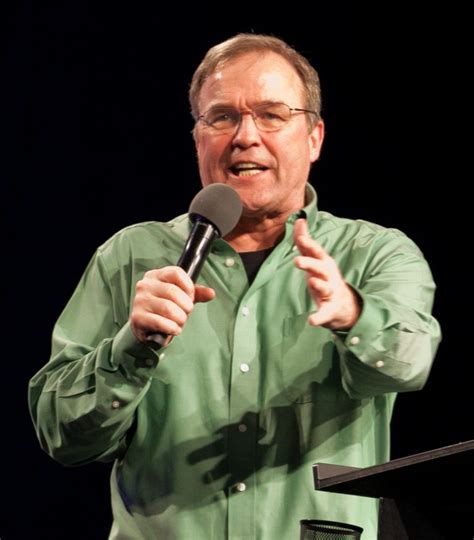A Quote by Joshua Harris
When you let God be God you can let humans be humans. When we place God in His rightful place in our lives, we don't struggle so much when human relationships let us down.
Related Quotes
There are two gods. The god our teachers teach us about, and the God who teaches us. The god about whom people usually talk, and the God who talks to us. The god we learn to fear, and the God who speaks to us of mercy. The god who is somewhere up on high, and the God who is here in our daily lives. The god who demands punishment, and the God who forgives us our trespasses. The god who threatens us with the torments of Hell, and the God who shows us the true path.
There are two gods. A god who casts us off because of our sins, and a God who calls to us with His love.
God has made us humans in God's own image. So therefore the highest way to talk about God is by some kind of analogy with ourselves. So, naturally, if we who are finite and sinful suffer in multiple ways because of sin and evil and the horrible things that happen in our world, how much more does God, who is infinite, sinless, and knows the totality of all that happens to everybody, suffer pain and heartache at the suffering of his human and non-human creation - and be angry at all that causes it?
God build’s God’s kingdom. But God ordered this world in such a way that His own work within that world takes place through the human beings that reflect His image. That is central to the notion of being made in God’s image. He has enlisted us to act as His stewards in the project of creation. So the objection about us trying to build God’s kingdom by our own efforts, though it seems humble and pious, can actually be a way of hiding from responsibility, of keeping one’s head well down when the boss is looking for volunteers.
As long as I hold tightly to something, I believe I own it. But when I give it away, I relinquish control, power, and prestige. When I realize that God has a claim not merely on the few dollars I might choose to throw in an offering plate, not simply on 10 percent or even 50 percent, but on 100 percent of "my" money, it's revolutionary. If I'm God's money manager, I'm not God. Money isn't God. God is God. So God, money, and I are each put in our rightful place.
By the grace of God I want to impart the Word, and bring you into a place where you will dare to act upon the plan of the Word, to so breathe life by the power of the Word that it is impossible for you to go on under any circumstances without his provision. The most difficult things that come to us are to our advantage from God's side. When we come to the place of impossibilities, it is the grandest place for us to see the possibilities of God.
This is also why it is wrong to treat God as a grand employment agency, a celestial executive searcher to find perfect fits for our perfect gifts. The truth is not that God is finding a place for our gifts but that God has created us and our gifts for a place of his choosing – and we will only be ourselves when we are finally there.
We cannot find God without God. We cannot reach God without God. We cannot satisfy God without God - which is another way of saying that all our seeking will fall short unless God starts and finishes the search. The decisive part of our seeking is not our human ascent to God, but His descent to us. Without God's descent there is no human ascent. The secret of the quest lies not in our brilliance but in His grace.
Each one of us has some kind of vocation. We are all called by God to share in His life and in His Kingdom. Each one of us is called to a special place in the Kingdom. If we find that place we will be happy. If we do not find it, we can never be completely happy. For each one of us, there is only one thing necessary: to fulfill our own destiny, according to God's will, to be what God wants us to be.
Let the average man be put to the proof on the question of who is above, and his true position will be exposed. Let him be forced into making a choice between God and money, between God and men, between God and personal ambition, God and self, God and human love, and God will take second place every time.
the very minute we think we 'have' God, God will surprise us. As we search in fire and earthquakes, God will be in the still small voice. As we listen in silent meditation, God will be shouting protests in the street. God is warning us that we had best not try to find our security in any well-defined concept or category of what is Godly - for the minute we believe we are into God, God is off again and calling us forth into some unknown place.



































